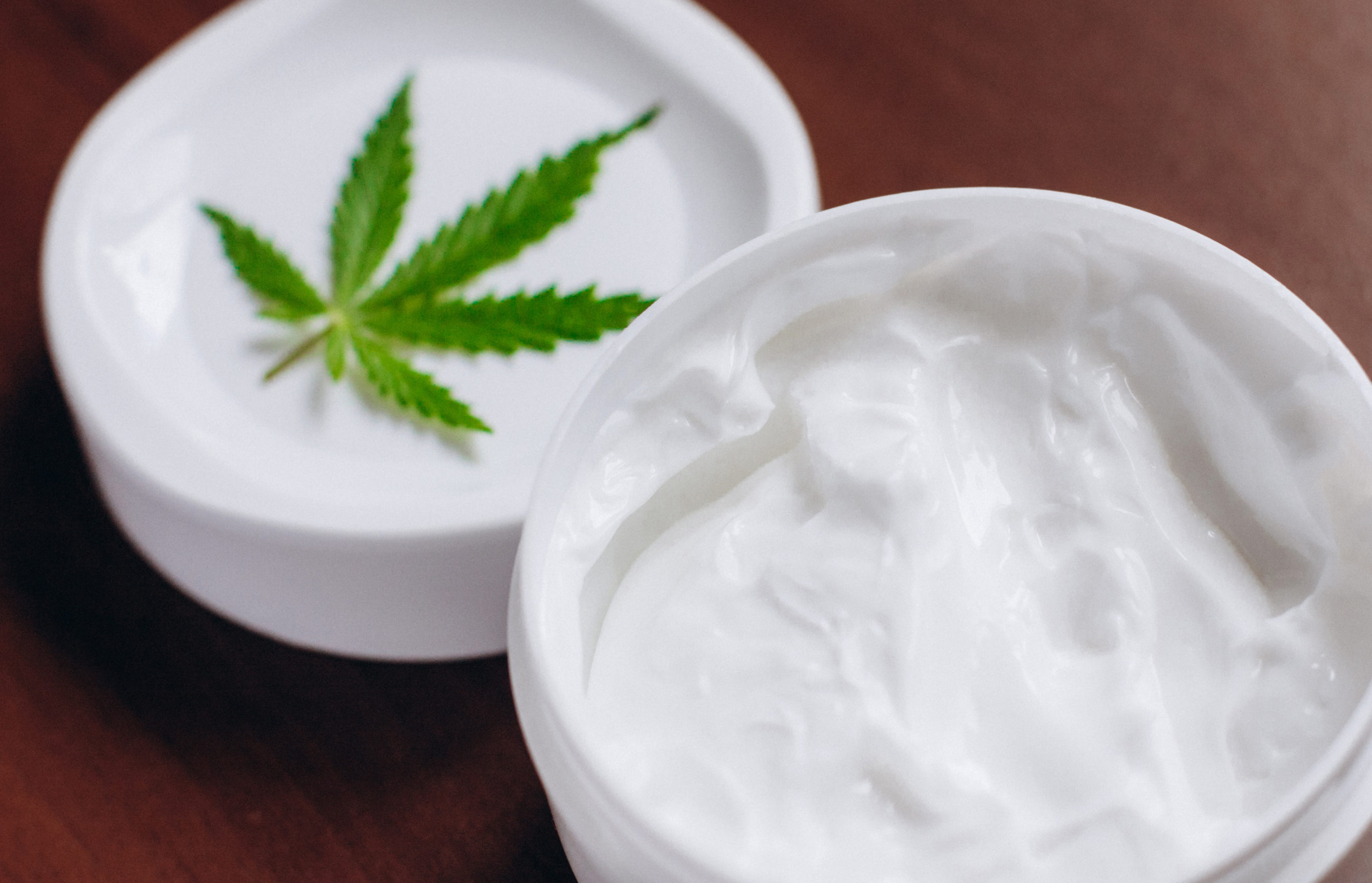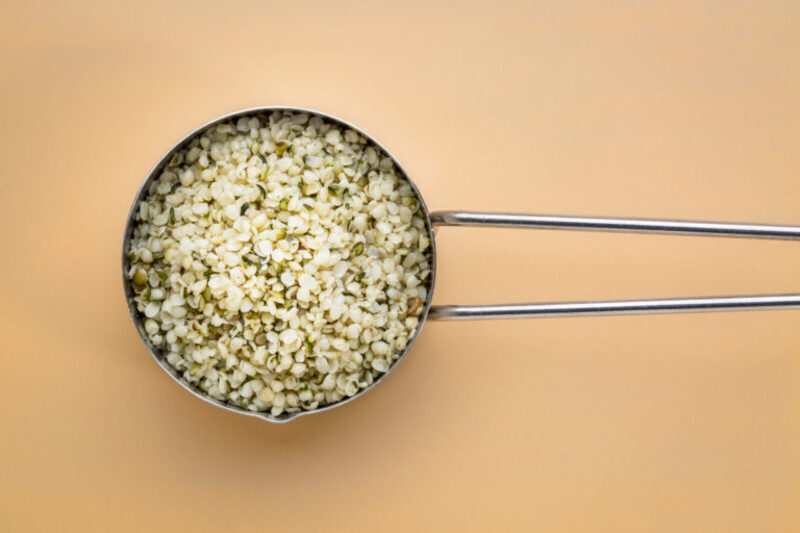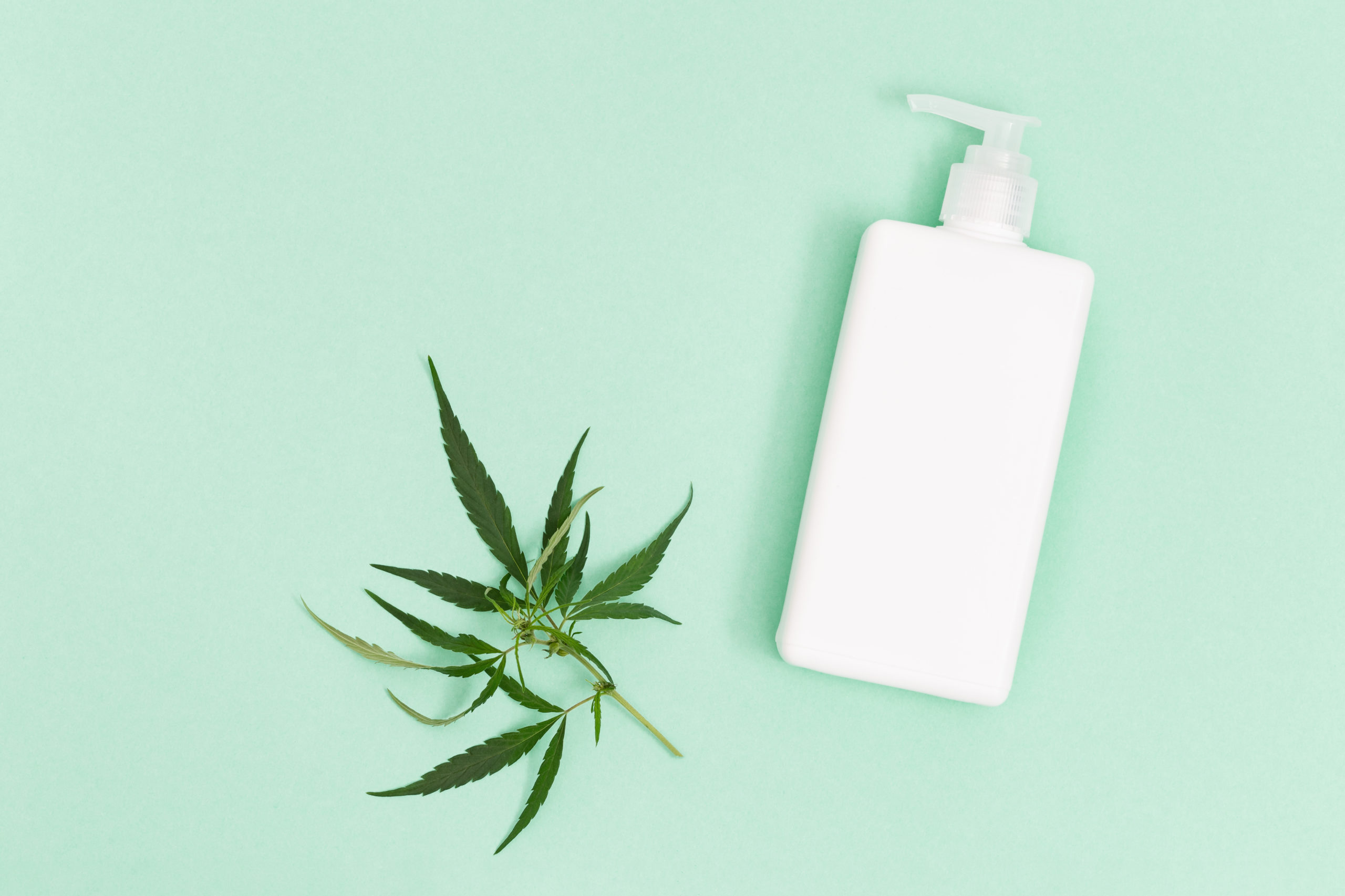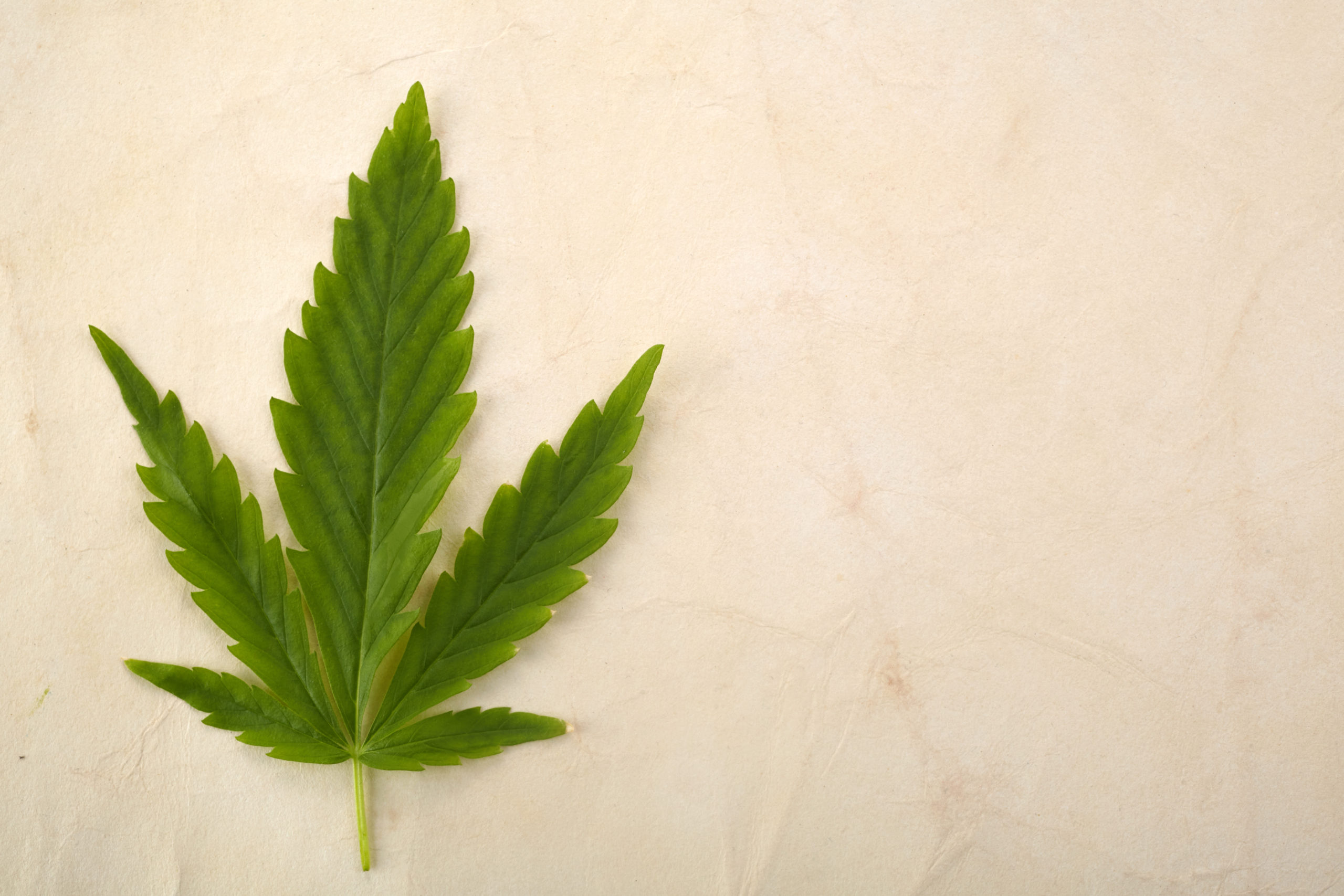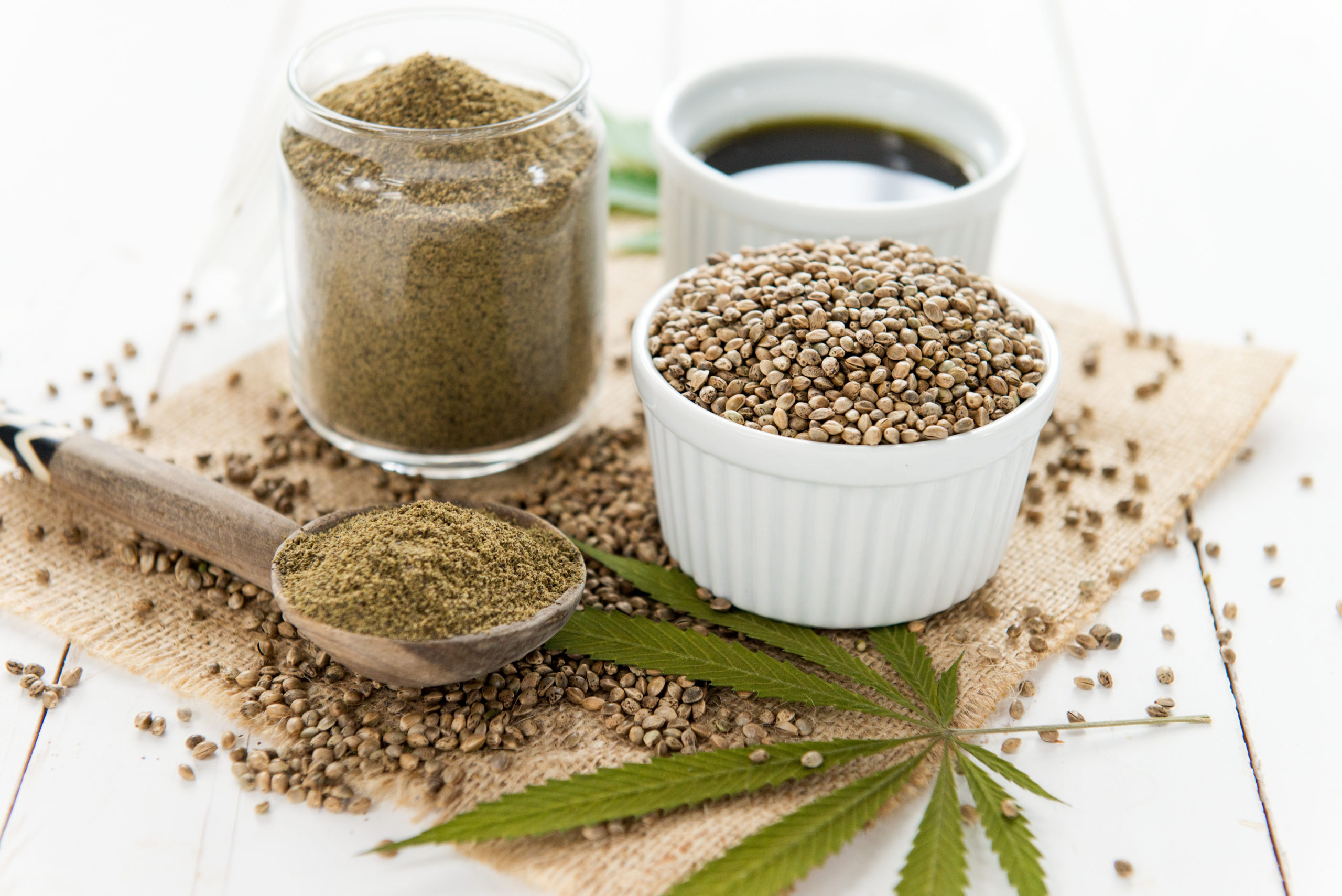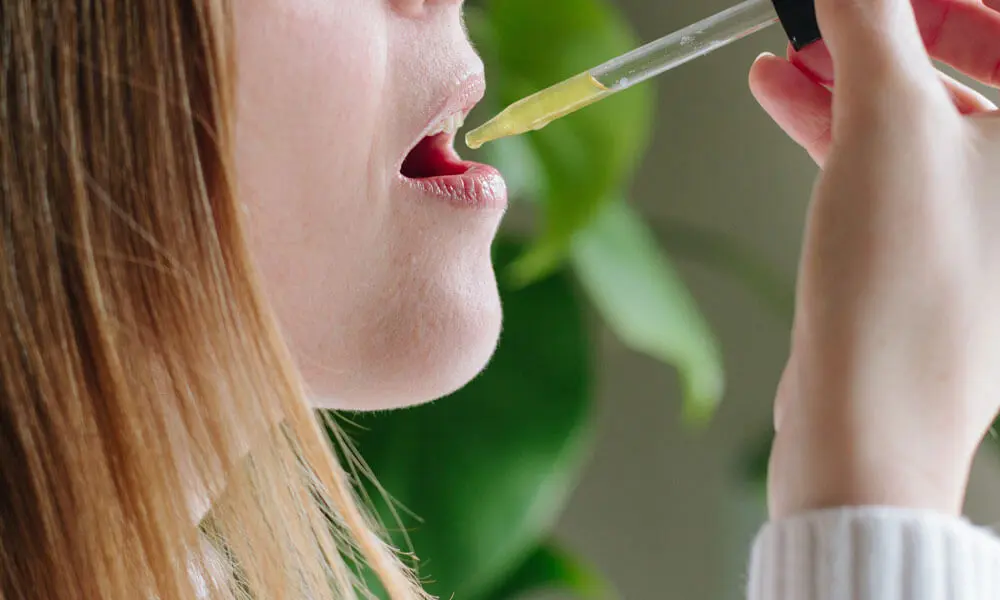-
- Market Research
- |
- CBD Near Me
- |
- Giveaways
- |
- Newsletter
- |
- Contact
- |
- Advertise
- |
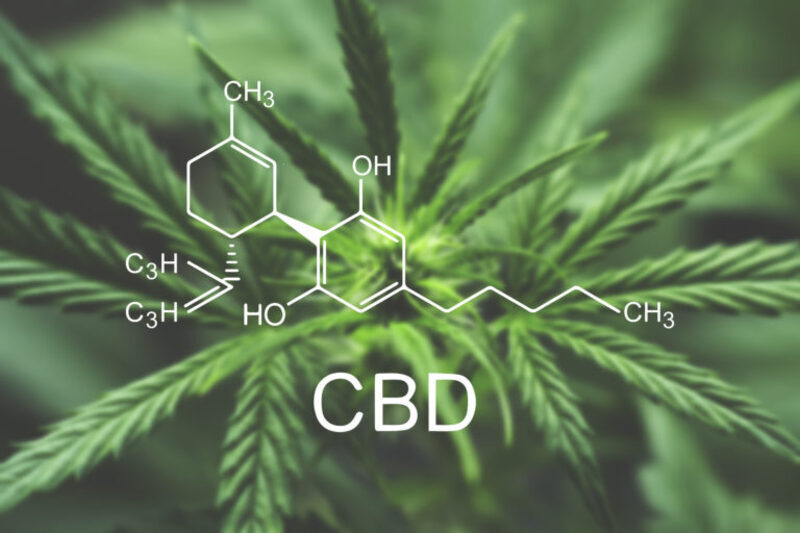
All is not what it seems when it comes to CBD.
That’s because some CBD products do a far better job at harnessing hemp’s power than others. The hemp plant contains all sorts of active ingredients, and it takes a lot of work to capture everything.
Only full spectrum CBD products—products that contain a full array of hemp’s cannabinoids, terpenes, and flavonoids—get close.
According to our 2019 US CBD consumer report, just over one in three current CBD consumers (33.9%) said they knew the difference between full spectrum CBD, broad spectrum CBD, and CBD isolate.
What exactly is in hemp?
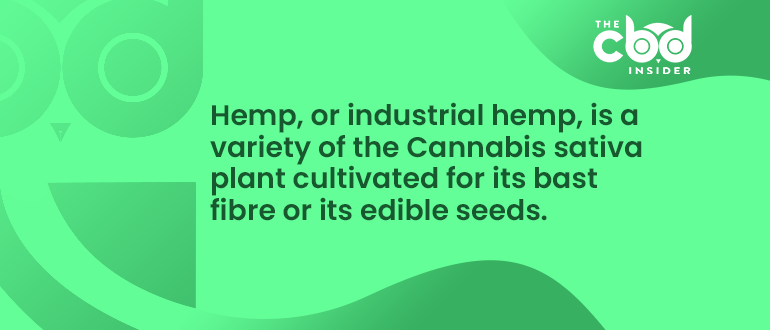
Hemp is best known for its CBD content. But while CBD is important, it’s far from the only magical compound hemp has in its resinous flowers.
Indeed, hemp is an unusually diverse combination of hundreds of different plant compounds—and possibly much more. A 2016 study called it “The Plant of the Thousand and One Molecules.” Hemp’s terpene content is especially impressive—the plant contains terpene combinations unseen in virtually any other plant.
Here’s a closer look at the three categories of compounds that hemp contains.
Cannabinoids
- CBD is just one of hemp’s dozen-plus cannabinoids, though it’s the most prevalent one by far. In one sense, the term “CBD oil” isn’t an entirely accurate depiction of what’s really in it.
- THC may be best known for giving marijuana its characteristic high, but THC is also the second-most concentrated cannabinoid in most mature hemp cultivars.
- CBG is known as the “mother cannabinoid.” It contains many of the same health benefits as CBD—and then some. Recent research shows it may fight harmful bacteria.
- CBN is another trace cannabinoid with significant potential benefits. It may promote sleep and relaxation.
- CBDv is what scientists call a homolog of CBD (aka it’s very similar), but CBDv also has some distinct benefits. It seems to be especially anti-convulsant.
Terpenes
- Humulene is a hoppy, earthy terpene that shows up in many strains of industrial hemp. It seems to be anti-anything bad and may combat inflammation.
- Pinene is, well, a piney terpene that gives some strains of hemp their energizing effects. Pinene is also a known bronchodilator.
- Limonene is a citrus terpene, both in terms of source and smell. It also confers powerful anti-inflammatory properties.
- Linalool is one of the most relaxing terpenes. Derived from lavender (and hemp, of course), linalool balances the emotions and works as an antioxidant.
Flavonoids
- Cannflavin A & Cannflavin B are flavonoids only found within the Cannabis Sativa species. Studies from way back in the 80s have shown they inhibit certain inflammatory markers thirty times more effectively than aspirin.
- Other flavonoids may also be present in hemp flower. Hopefully, as cannabis research continues to advance over time, scientists will discover more flavonoids.
What is full spectrum CBD?
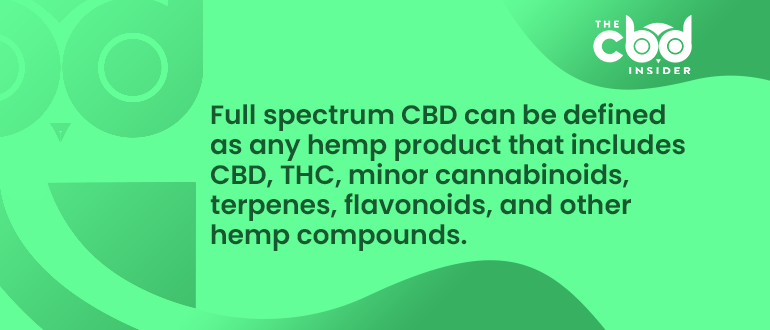
As you can see from the above, a lot is going on in hemp.
And full spectrum CBD products capture most of it. Full spectrum CBD can be defined as any hemp product that contains a full spectrum of CBD, THC, cannabinoids, terpenes, and flavonoids.
Intuitive, right? By definition, full spectrum CBD products even include trace amounts of THC. This THC is more important than you might think: it may “open up” certain endocannabinoid receptors for CBD to fully activate them.
Full spectrum CBD products can come in many forms, including edibles, oils, tinctures, vape pens, capsules, and patches. Any of these delivery methods are likely to benefit from the incredible diversity of molecules present in hemp, meaning the possibilities are nearly endless.
Put full spectrum CBD’s unique combo of plant compounds in the lab, and impressive things happen. One study out of Israel’s Hebrew University of Jerusalem found that full spectrum cannabis extract was four times stronger than other CBD products. Four times.
All that said, full spectrum CBD does have one interesting downside. Its high terpene content means it’s basically aromatherapy in a bottle — and some people are allergic to said aromatherapy. Those with severe pine allergies may be most likely to have a slight reaction to full spectrum CBD oil.
Full spectrum CBD pros
- Incredible nutrient diversity
- Engages the entourage effect
- Highly effective
Full spectrum CBD cons
- May contain inconsistent terpene levels
- May induce allergies (rare)
Full spectrum CBD vs. broad spectrum CBD
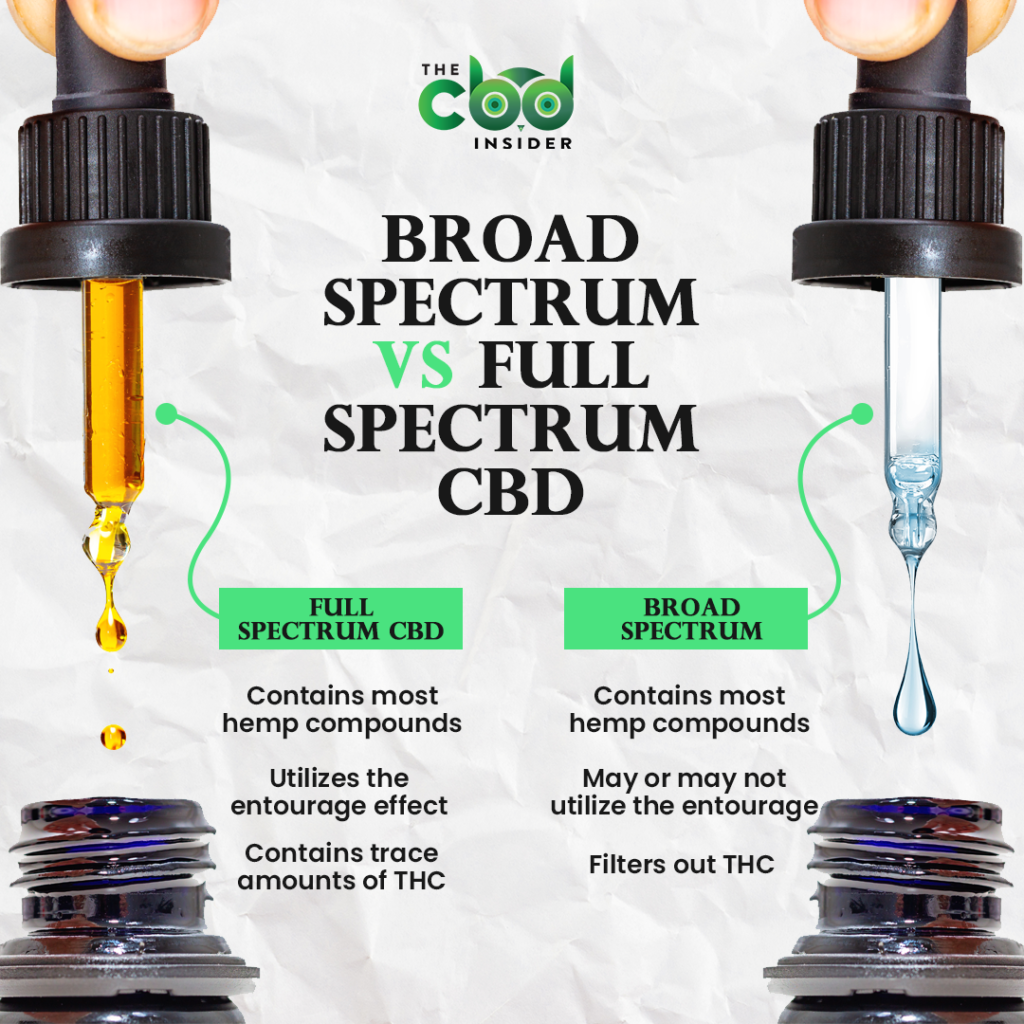
Full spectrum CBD and broad spectrum CBD are quite similar. That’s because broad spectrum CBD is defined, not by something it has, but by one thing it lacks: THC.
Broad spectrum CBD contains cannabinoids, terpenes, and flavonoids, but no THC.
In theory, at least.
The nature of CBD extraction means broad spectrum CBD may also be lacking in some trace cannabinoids and terpenes. Terpenes with similar chemical properties to THC are most likely to go “missing.” The very best broad spectrum products, however, sometimes use a special type of mass spectrometry to isolate and remove just THC. In the future, this high-tech extraction method will likely become more popular.
Does broad spectrum CBD activate the entourage effect? Well, that depends on who you ask. Some studies have indicated that THC is critical to this effect; others, not so much. Broad spectrum CBD likely provides more synergy than CBD isolate but less than full spectrum CBD.
Broad spectrum CBD pros
- Highly refined
- Completely THC free, for those who are into that
- Possibly safer for those undergoing frequent drugs tests
Broad spectrum CBD cons
- Hard to quantify “missing” compounds
- May not fully activate the entourage effect
Full spectrum CBD vs. CBD isolate
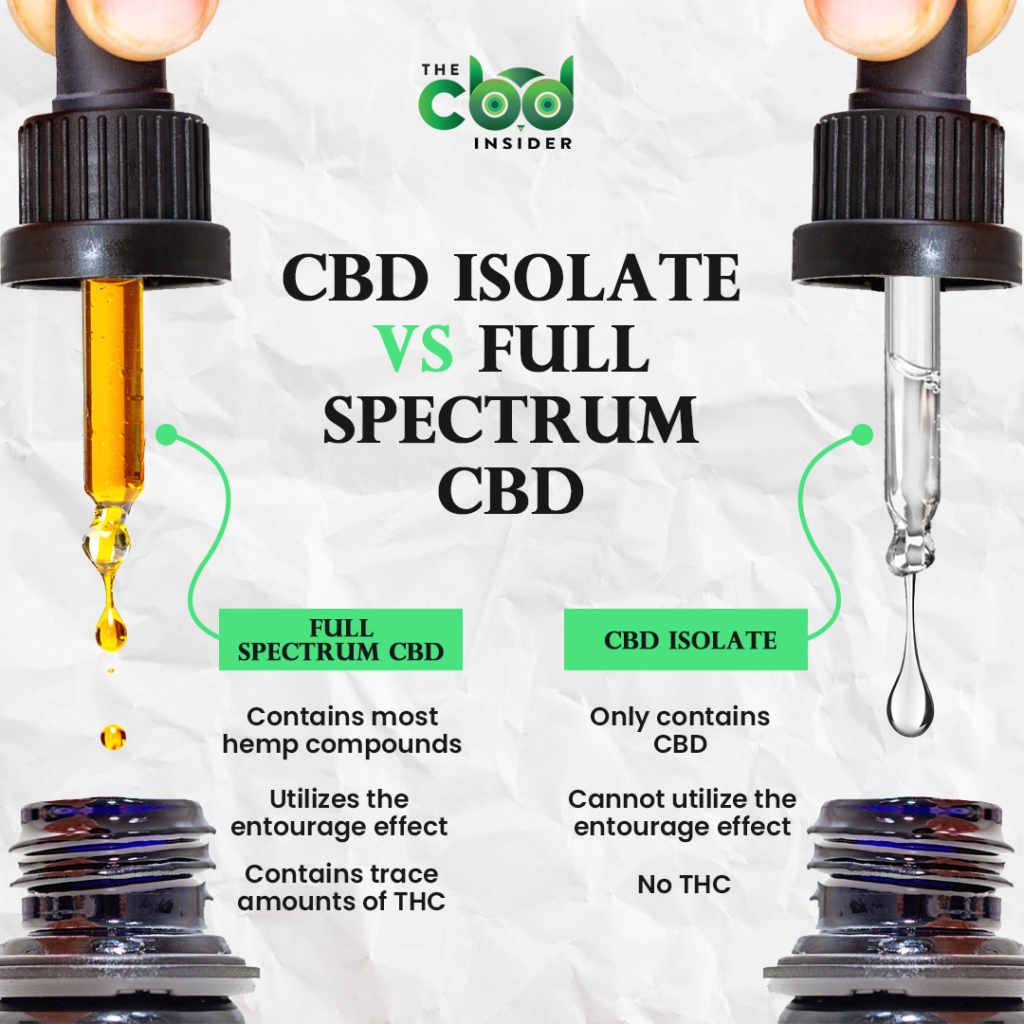
CBD isolate is the third and final type of CBD we’ll go over here.
CBD isolate is exactly what you’d suspect from its name—pure, isolated CBD.
This level of purity might sound good, at least in theory, but in practice, CBD isolate is far less potent per unit than other types of CBD products. The Israeli study we mentioned earlier found a four-fold reduction in strength, for example.
Just as significantly, CBD isolate’s efficacy dropped off at higher doses, quickly reaching a point of diminishing returns, while full spectrum CBD did not. This strongly implies that CBD isolate is harder to dose.
CBD isolate pros
- Completely THC free, for those who are into that
- Possibly safer for those undergoing frequent drugs tests
CBD isolate cons
- Less powerful than alternatives
- Cannot engage the entourage effect
- More potential side effects
- Harder to dose
How to activate the entourage effect
We’ve mentioned the entourage effect a few times mentioned so far. With this special entourage comes a powerful homeostatic effect where CBD can do its best job.
So, what’s the best way to activate this entourage? Take full spectrum CBD.
The fuller spectrum a CBD product is, the more fully it’ll activate the entourage effect.
“It has become clear that the healing potential of the whole plant is stronger than isolated compounds on their own,” affirms chemist Lumír Hanuš, who first discovered the endocannabinoid anandamide.
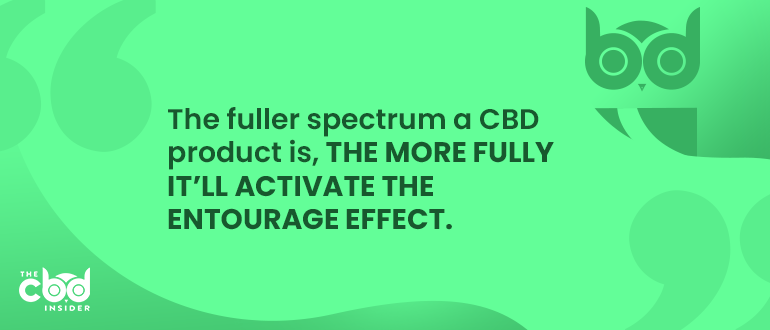
When asked what he thought the future of cannabis research held, Hanuš was equally insightful (emphasis added):
“I can see two different directions. One will focus on production of derivatives of active compounds that could be patented and sold in order to make as much money as possible. The other direction puts patients before profit and focuses on the use of the whole plant and synergistic effects of its compounds.”
So far, so good, as more and more consumers begin to become aware of the superiority of full spectrum CBD.
Here’s to hoping the future stays bright.


